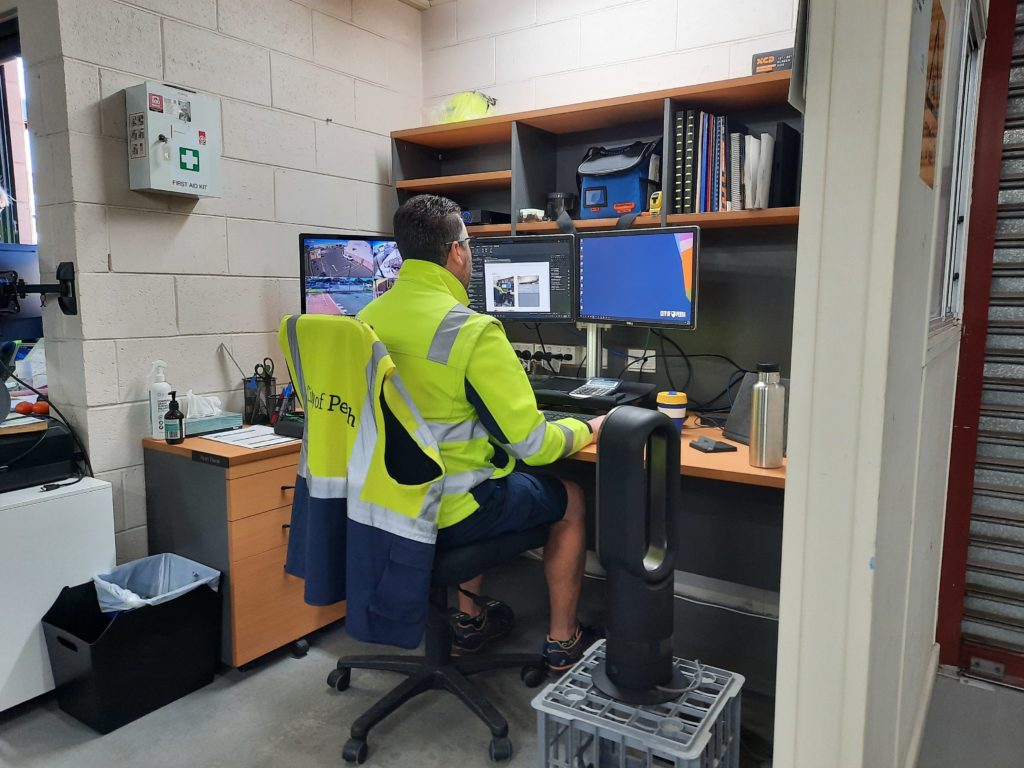How to safely work in heat?
The Work, Health and Safety Act WA (2020) requires local governments (PCBUs) to ensure health and safety, so far as is reasonably practicable, by eliminating hazards and risks.

The ultimate goal of work, health and safety legislation is to make sure that everyone is provided with a safe work environment. It recognises the role that employers, businesses and leaders have in making sure that people ‘get home safe’ after a day’s work. The legislation also recognises an individual’s personal responsibility for their own safety.
The legislation introduces a range of key changes that leaders should be aware of, these include:
Person conducting a business or undertaking (PCBU)
PCBU replaces the term ‘employer’ and is used to capture a broader range of employing entities. A local government organisation is considered a PCBU.
Term – Officer
An officer is a person who makes, or has participated in making, decisions that affect the whole or a substantial part of the business or undertaking.
In a local government context this includes the chief executive officer and directors, but may also include others if the above is met.
The Work, Health and Safety Act WA (2020) requires local governments (PCBUs) to ensure health and safety, so far as is reasonably practicable, by eliminating hazards and risks.
Local governments are subject to strict legal obligations, including those contained within the State Records Act 2000 (WA), to maintain records created or received in the exercise of their functions.
When considering high risk or high hazard assets, it is important to adopt a proactive approach while managing them. Due to resource constraints, property risks are commonly managed in a reactive manner after an incident, near miss, or workplace inspection by a regulator or LGIS.
Local governments are PCBUs and have a responsibility to, so far as is reasonably practicable, ensure the safety and health of workers while at work. This includes their physical and psychological health.
The new legislation explicitly addresses the issue of psychological health – so local governments must make sure all risk assessments consider both physical and psychosocial hazards.
In short the legislation demonstrates that safety is everyone’s responsibility – councillors, leaders and workers – everyone has a part to play.
The Act excludes local government councillors under the definition of an ‘officer’. It does, however, recognise the important role elected members have in supporting ‘officers’ of a PCBU – that is, supporting CEO’s and directors in complying with work, health and safety responsibilities.
Councillors have an obligation under the WHS Act as an ‘other’. Section 29 of the Act refers to ‘Duties of other persons at the workplace’ and outlines the following obligations:
In practice this means that when fulfilling their duties as a councillor, elected members must be mindful of the above obligations. This includes when interacting with local government officers and workers, participating in discussions and decisions for the local government.
Everyone should be motivated and committed to maintaining a safe workplace and looking after each other. Unfortunately, sometimes, this isn’t always the case and the legislation includes large penalties for individuals who don’t meet their work, health and safety responsibilities.
The LGIS People Risk team have developed a range of resources to support members in meeting their work, health and safety responsibilities. We can also deliver information sessions to council and provide advice.
If you have any questions, please contact the LGIS People Risk Team.

LGIS receives approximately 1,300 claims on average each year; for the past five years, of those the vast majority are common law claims.

A decade’s long partnership between LGIS and the Royal Life Saving Society of WA (RLSSWA) has delivered benefits to the entire WA local government sector – but work still needs to be done to make sure that audit recommendations are actioned to keep aquatic centres safe.

The City of Perth engaged the LGIS injury prevention team
to evaluate workstations of a group of employees at their depot to make sure they were comfortable, safe and less likely to injure themselves.
LGIS is the unifying name for the dedicated suite of risk financing and management services for WA local governments, established by the WA Local Government Association in conjunction with JLT Public Sector (part of the Marsh group of companies). LGIS is managed by JLT Public Sector (ABN 69 009 098 864 AFS Licence 226827).
Risk Matters, via this website, is designed to keep members, their staff and elected members informed on topical risk management and insurance issues and LGIS programs and services.